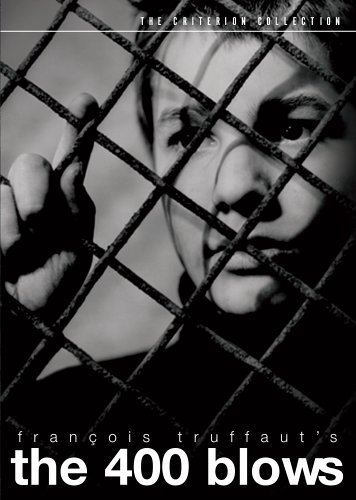 Are people born rebellious or do they become that way? Is it something instinctive within all of us, or does it come about due to the environment around us? And why is it that these feelings are so prevalent during our youth? Francois Truffaut’s “The 400 Blows†neither asks nor answers these questions. These are merely some of the thoughts that might arise after viewing this classic piece of postwar French cinema. It is the kind of film that makes you think about the choices we are given while we are young and will particularly appeal to those among us with a more rebellious streak.
Are people born rebellious or do they become that way? Is it something instinctive within all of us, or does it come about due to the environment around us? And why is it that these feelings are so prevalent during our youth? Francois Truffaut’s “The 400 Blows†neither asks nor answers these questions. These are merely some of the thoughts that might arise after viewing this classic piece of postwar French cinema. It is the kind of film that makes you think about the choices we are given while we are young and will particularly appeal to those among us with a more rebellious streak.
“The 400 Blows†tells the story of Antoine Doinel, a rather trouble-prone 12-year old, who grows tired of his life at home and school. He doesn’t resort to violence, but he lies, cheats and steals, as if it’s second nature to him. His parents don’t understand him and his teacher is inclined to get him for anything and everything, even if he’s not to blame. Unsurprisingly, he runs away hoping for a life on his own terms. But again, he comes up against the walls of proper society that try to constrain him.
Antoine represents the restless id within all of us. One of the things that stand out in this film is how smoothly and elegantly the camera moves, sometimes telling so much without words. It never gets in the way of the story. There are a few sequences where it’s just the camera and the music, and that’s all there needs to be.
One standout has the camera on a rooftop looking down at a teacher leading a line of students through Paris and every few seconds a group of students would peel off the main group. The camera just sits there stable, like an eye in the sky.
Speaking of Paris, the French capital itself becomes a character in the film. As Antoine goes about his various adventures and misadventures, the city becomes a place full of possibilities. There are movies to see and rides to go on; the ultimate children’s playground. The fact that our protagonist is a child probably has something to do with this; to him the freedom of the city is a stark contrast to the stifling conditions at home and at school.
What allows this movie to succeed with a rather unsubstantial plot is the work of Jean-Pierre Léaud as Antoine. He would actually go on to reprise the character four more times over the course of 20 years, playing him as he grows up. In this film his characterization is what pulls us through. And being in almost every frame, he doesn’t disappoint. While he faces slights time and again, he’s never angry, there’s always a smile on his face, representing endless optimism found in children not yet soured by the cynicism of adulthood. There’s definitely an element of childlike innocence that pervades the entire picture, which is fitting, as this is Truffaut’s first feature film inspired by his own childhood growing up in Paris. This is a film about a child who is only now coming up against the limits imposed by the adult world.
Throughout the movie, you feel as if you’re like Antoine, looking up at everyone saying no or shaking their heads with negativity and like him you wonder what’s so wrong about wanting to be free.

Leave a Reply